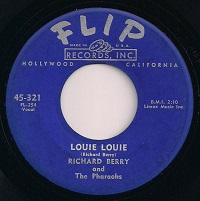
"Louie Louie" is a rhythm and blues song written and composed by American musician Richard Berry in 1955, recorded in 1956, and released in 1957. It is best known for the 1963 hit version by the Kingsmen and has become a standard in pop and rock. The song is based on the tune "El Loco Cha Cha" popularized by bandleader René Touzet and is an example of Afro-Cuban influence on American popular music.
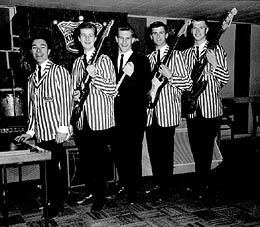
The Kingsmen are a 1960s American rock band from Portland, Oregon. They are best known for their 1963 recording of R&B singer Richard Berry's "Louie Louie", which held the No. 2 spot on the Billboard charts for six weeks and has become an enduring classic.

Paul Revere & the Raiders were an American rock band formed in Boise, Idaho, in 1958. They saw considerable U.S. mainstream success in the second half of the 1960s and early 1970s. The band was known for including Revolutionary War-style clothes in their attire.
Wand Records was an American independent record label, started by Florence Greenberg in 1961 as a subsidiary of Scepter Records. Artists on Wand Records included The Isley Brothers, The Kingsmen, Mel Wynn & the Rhythm Aces, Chuck Jackson, and the Monzas.

Gusto Records is a Nashville, Tennessee-based record company that specializes in reissuing and licensing recordings.
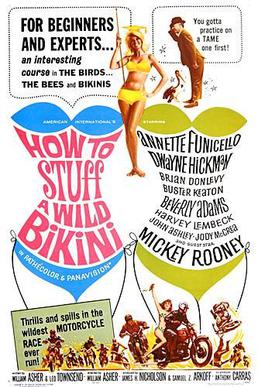
How to Stuff a Wild Bikini is a 1965 Pathécolor beach party film from American International Pictures. The sixth entry in a seven-film series, the movie features Mickey Rooney, Annette Funicello, Dwayne Hickman, Brian Donlevy, and Beverly Adams. The film features a brief appearance by Frankie Avalon and includes Buster Keaton in one of his last roles.
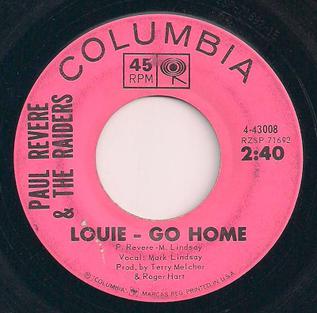
"Louie, Go Home" is a song written by Paul Revere and Mark Lindsay as a sequel after Richard Berry declined their request for a follow-up to "Louie Louie". It was recorded by Paul Revere and the Raiders in 1963 and released in March 1964.

"(Do the) Mashed Potatoes" is a rhythm and blues instrumental. It was recorded by James Brown with his band in 1959 and released as a two-part single in 1960. For contractual reasons the recording was credited to "Nat Kendrick and the Swans".
"You Can't Sit Down" was originally recorded in 1959 as "Can't Sit Down" by The Bim Bam Boos on Dasher Records catalogue number D-500 and credited to Dasher - Muldrow; it featured Philip Upchurch on guitar and Cornell Muldrow on organ.
Lawrence Fewell Roberts II, known as Robin Roberts and in his music career as "Rockin' Robin" Roberts, was an American singer. He performed in the early 1960s with the Wailers, a rock and roll band based in Tacoma, Washington. His recordings include the earliest cover version of Richard Berry's "Louie Louie", recorded in 1960 and released the following year.
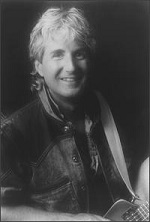
Jack Brown Ely was an American guitarist and singer, best known for singing the Kingsmen's version of "Louie Louie". Classically trained in piano, he began playing guitar after seeing Elvis Presley on television. In 1959, he co-founded the Kingsmen and with them recorded "Louie Louie" in 1963; Ely's famously incoherent vocals were partly the result of his braces and the rudimentary recording method. Before the record became a hit Ely was forced out of the group and began playing with his new band, the Courtmen. Ely died in Terrebonne, Oregon, on April 28, 2015, at age 71.

Speed Connection II – The Final Chapter is a live album by the Fleshtones. The album was recorded live at The Gibus Club, Paris, France on March 7, 1985. The band were booked to play nine shows at the club over a two-week span, in two segments. The opening band for these shows were Les Playboys.

The Kingsmen Volume II is the second album by the rock band The Kingsmen, released in 1964.
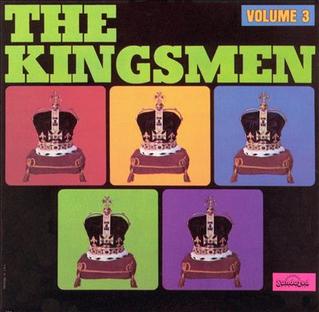
The Kingsmen Volume 3 is the third album by the rock band the Kingsmen, released in 1965.
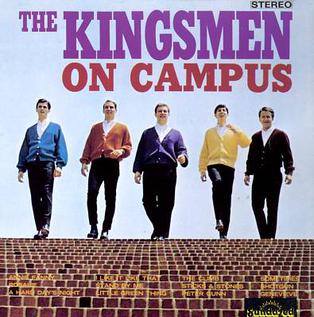
The Kingsmen on Campus is the fourth album by the rock band The Kingsmen, released in 1965.

15 Great Hits is the fifth album by the rock band The Kingsmen, released in 1966.

Up and Away is the sixth album by the rock band The Kingsmen, released in 1966.

The Kingsmen Greatest Hits is the seventh album by American rock band The Kingsmen, released in 1966.
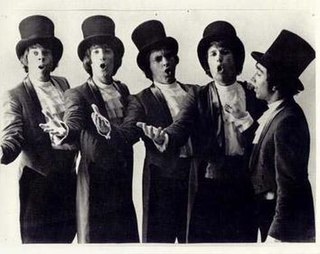
Don and the Goodtimes were an American garage rock band, formed in Portland, Oregon, United States, in 1964. Fronted by Don Gallucci, former keyboardist of the Kingsmen, the group made a name for itself in the Northwest rock scene performing in a similar style as their contemporaries the Wailers and the Sonics. Over time, Don and the Goodtimes honed their vocal harmonies and earned two hits on the Billboard Hot 100 in 1967, including their biggest hit "I Could Be So Good to You". The band released their album, So Good, and later experimented with psychedelia under the moniker Touch before disbanding in 1969.
"The Jolly Green Giant" is a song written by Lynn Easton, Don Harris, and Dewey Terry and performed by The Kingsmen. It reached No.1 on the Canadian chart, No.4 on the U.S. pop chart, and No.25 on the U.S. R&B chart in 1965. It was featured on their 1965 album The Kingsmen Volume 3. The song was based on Green Giant's mascot the Jolly Green Giant. The single originally only credited Easton as the writer, but Harris and Terry were later added when it was determined the song was a re-write of The Olympics song "Big Boy Pete".



















